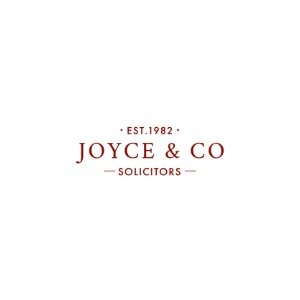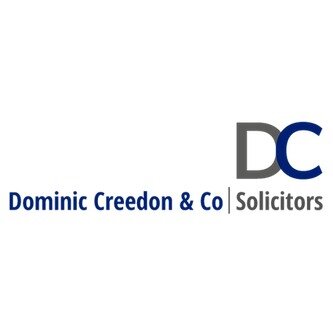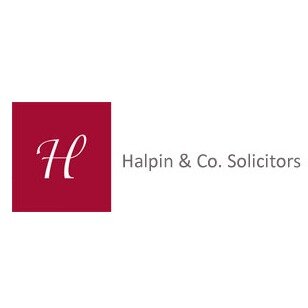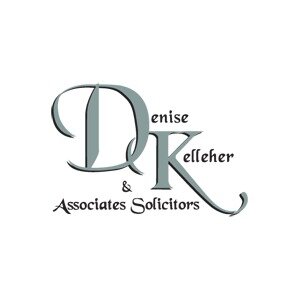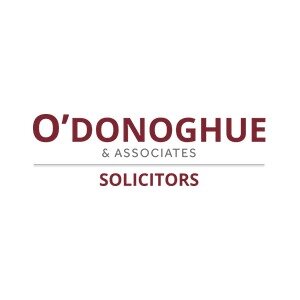Best Commercial Real Estate Lawyers in Cork
Share your needs with us, get contacted by law firms.
Free. Takes 2 min.
Free Guide to Hiring a Real Estate Lawyer
List of the best lawyers in Cork, Ireland
About Commercial Real Estate Law in Cork, Ireland
Commercial Real Estate Law in Cork, Ireland encompasses a range of legal matters associated with commercial property. This includes transactions such as buying and selling property, leasing, development, and management of commercial properties. Key aspects covered under this field of law include zoning laws, property tax, financing, compliance with local regulations, and dispute resolution. As Ireland's second-largest city, Cork presents a myriad of opportunities for investors and businesses looking to establish or expand their commercial real estate portfolios.
Why You May Need a Lawyer
Engaging a lawyer for commercial real estate matters can provide indispensable guidance and protect your interests. Common situations where legal help might be essential include:
- Property Transactions: Assistance with the complex process of purchasing or selling commercial property, including drafting and reviewing contracts, and ensuring compliance with local laws.
- Leasing Agreements: Crafting lease agreements that protect your rights, help manage landlord-tenant relationships, and address potential disputes.
- Development Projects: Navigating zoning laws, building regulations, and securing necessary permits for new developments.
- Property Management: Legal support in managing commercial properties, ranging from tenant relations to maintenance obligations.
- Dispute Resolution: Legal representation in resolving disputes through negotiations, mediations, or court proceedings.
- Financing: Guiding the legal aspects of financing and mortgage agreements to ensure favorable terms and compliance with regulations.
Local Laws Overview
When dealing with commercial real estate in Cork, understanding key aspects of local laws is crucial:
- Zoning Regulations: Cork City Council administers zoning laws that designate the use of land within the city. Different zones could be designated for residential, commercial, industrial, or mixed-use, each with specific regulations.
- Building Regulations: The Building Control Regulations enforce standards for construction, alterations, and extensions, ensuring safety and accessibility.
- Planning Permission: Most significant developments require planning permission from the local authority. This process ensures that proposed developments adhere to local development plans.
- Property Tax: Commercial property owners must be aware of Local Property Tax (LPT) implications and non-principal private residence charges.
- Environmental Compliance: Regulations exist to ensure that commercial activities do not harm the environment, including waste management and energy efficiency standards.
- Landlord-Tenant Law: The Residential Tenancies Board provides guidance and regulation for lease agreements, rent reviews, and tenant disputes.
Frequently Asked Questions
What is the process for purchasing commercial property in Cork?
Purchasing commercial property involves several steps including property search, securing financing, making an offer, due diligence, drafting and signing the sales contract, and finalizing the transaction.
Do I need planning permission for renovating my commercial property?
Yes, most structural renovations or changes in use for commercial properties require planning permission. It is advisable to consult with the Planning Department of Cork City Council.
What should be included in a commercial lease agreement?
A comprehensive lease agreement should cover the lease term, rental amount and payment schedule, responsibilities for maintenance and repairs, property use restrictions, and terms for lease termination.
How are disputes between landlords and commercial tenants resolved?
Disputes can be resolved through negotiation, mediation, or through the legal system. It’s prudent to have a lawyer help facilitate fair and efficient dispute resolution.
Can I change the use of my commercial property?
Changing the use of a property typically requires planning permission to ensure compliance with zoning laws. Consulting with the local authority and a legal expert is advisable.
Are there specific environmental regulations for commercial properties?
Yes, commercial properties must comply with environmental regulations including waste disposal, emissions control, and energy efficiency standards. Non-compliance can result in fines and legal penalties.
What are my obligations as a commercial landlord?
Obligations include maintaining the property in a safe condition, complying with health and safety regulations, managing lease agreements, and addressing tenant concerns and repairs promptly.
How can I ensure my commercial property is adequately insured?
Speak with an insurance provider to understand the types of coverage available, including property damage, liability insurance, and loss of rental income coverage. Ensure your policy aligns with the specific risks associated with your property.
What taxes are associated with owning commercial real estate?
Commercial property owners in Cork may be liable for Local Property Tax (LPT) and commercial rates charged by the local government. Consulting with a tax advisor or lawyer can provide clear guidance on all tax obligations.
How do I finance a commercial real estate purchase?
Financing options include commercial mortgages from banks and financial institutions, private financing, or through real estate investment groups. Engaging a lawyer can help navigate the terms and conditions of financing agreements.
Additional Resources
If you need further information or assistance, the following resources may be helpful:
- Cork City Council: For information on planning, zoning, and local regulations.
- Residential Tenancies Board (RTB): Provides guidance on landlord-tenant relationships and dispute resolutions.
- Law Society of Ireland: Offers resources and referrals to qualified solicitors specializing in commercial real estate.
- Environmental Protection Agency (EPA): For compliance with environmental regulations affecting commercial properties.
Next Steps
If you require legal assistance in commercial real estate, consider the following steps:
- Identify Your Needs: Clearly outline your specific legal needs, whether it’s for a transaction, dispute, or compliance issue.
- Research and Consult: Research qualified solicitors who specialize in commercial real estate in Cork. Schedule consultations to discuss your case and gauge their expertise and suitability.
- Prepare Documentation: Gather all relevant documents including property deeds, leases, financial statements, and correspondence to provide a comprehensive overview for your solicitor.
- Engage a Lawyer: Choose a solicitor who best matches your needs and engage their services. Ensure you understand their fee structure and the scope of their services.
- Stay Informed: Maintain regular communication with your solicitor and stay informed about the progress of your legal matters. Seek clarity on any legal terms or processes you do not understand.
By taking these steps, you can navigate the complexities of commercial real estate with greater confidence and ensure that your legal interests are well-protected.
Lawzana helps you find the best lawyers and law firms in Cork through a curated and pre-screened list of qualified legal professionals. Our platform offers rankings and detailed profiles of attorneys and law firms, allowing you to compare based on practice areas, including Commercial Real Estate, experience, and client feedback.
Each profile includes a description of the firm's areas of practice, client reviews, team members and partners, year of establishment, spoken languages, office locations, contact information, social media presence, and any published articles or resources. Most firms on our platform speak English and are experienced in both local and international legal matters.
Get a quote from top-rated law firms in Cork, Ireland — quickly, securely, and without unnecessary hassle.
Disclaimer:
The information provided on this page is for general informational purposes only and does not constitute legal advice. While we strive to ensure the accuracy and relevance of the content, legal information may change over time, and interpretations of the law can vary. You should always consult with a qualified legal professional for advice specific to your situation.
We disclaim all liability for actions taken or not taken based on the content of this page. If you believe any information is incorrect or outdated, please contact us, and we will review and update it where appropriate.



